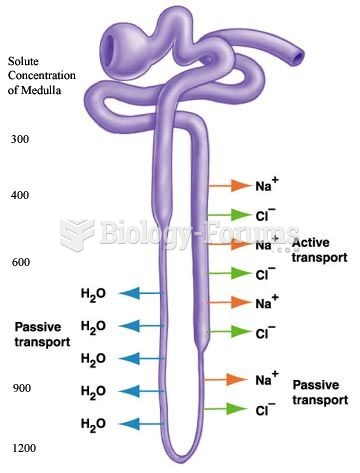|
|
|
Medication errors are more common among seriously ill patients than with those with minor conditions.
Pregnant women usually experience a heightened sense of smell beginning late in the first trimester. Some experts call this the body's way of protecting a pregnant woman from foods that are unsafe for the fetus.
When blood is deoxygenated and flowing back to the heart through the veins, it is dark reddish-blue in color. Blood in the arteries that is oxygenated and flowing out to the body is bright red. Whereas arterial blood comes out in spurts, venous blood flows.
On average, someone in the United States has a stroke about every 40 seconds. This is about 795,000 people per year.
If you could remove all of your skin, it would weigh up to 5 pounds.







